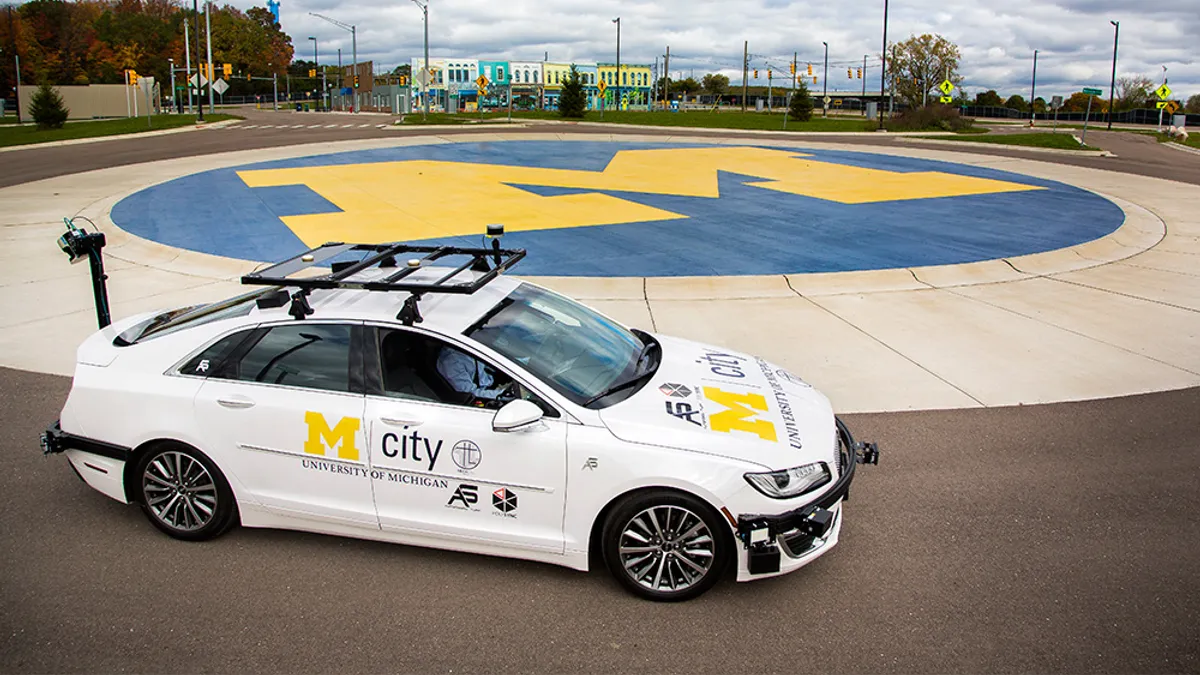Want to address the recent surge in traffic deaths and improve traffic flow in a smart city? Self-driving cars could help with that, said U.S. Rep. Bob Latta, R-Ohio.
Latta and U.S. Rep. Debbie Dingell, D-Mich., formed the Congressional Autonomous Vehicle Caucus last month to inform and instruct fellow members and “hopefully get them to ride in some autonomous vehicles,” Latta told Smart Cities Dive.
A senior member of the House Committee on Energy and Commerce, Latta introduced the SELF DRIVE Act in 2017 and again in 2020 and 2021 to create a federal regulatory framework to spur the development of autonomous vehicles in the U.S. The bill has been referred to the Subcommittee on Consumer Protection and Commerce.
Educating fellow legislators is a priority for the caucus. “It’s important that people, especially legislators, aren’t afraid of the technology,” Latta said. He wants to bring members of Congress to the Transportation Research Center in Ohio and the Mcity Test Facility at the University of Michigan so they can experience self-driving vehicles for themselves.
Safety advocates have voiced opposition to the legislation in the past. Jason Levine, executive director at the Center for Auto Safety, said in a 2020 statement that “this bill contains no regulatory or testing requirements to improve public confidence in the long-term safety of driverless vehicles. Instead, the SELF DRIVE Act protects auto manufacturers and technology companies from legal responsibility when their unregulated products put consumers at risk.”
Federal regulators have been closely watching auto manufacturers rolling out self-driving vehicles onto city streets in recent years. Data released by the National Highway Traffic Safety Administration in June found that cars using self-driving technology, including advanced driver assistance systems, were involved in 367 crashes over the course of more than 10 months.
But Latta wants to ensure that autonomous vehicle technology is developed domestically. Dingell agreed: “If the United States is going to stay [in] the forefront of innovation, manufacturing, and safety, we must ensure our nation is engaging all stakeholders, making bold investments, and working across the aisle to get the necessary policies right to support the safe deployment of autonomous vehicles,” she said in a press release.
Latta believes that self-driving cars will provide mobility for those who can’t drive because of age or disability, and he also looks to move the SELF DRIVE Act forward. “Debbie [Dingell] and I have looked at the legislation, and we’ve continued it on. I want to get something done,” he said.
The bill has the support of the U.S. Chamber of Commerce. The legislation “is an important step towards capitalizing on the potential of autonomous vehicle technology in a manner that is technologically neutral and supports innovation and market competition,” said Neil Bradley, executive vice president and chief policy officer for the Chamber, in a letter to House members.












